Seventy years of Syria’s state independence
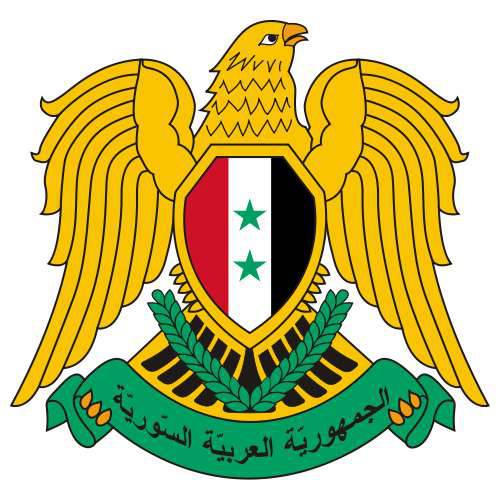
When the Ottoman Empire was defeated in the First World War, an active movement for the independence of its constituent Arab territories began. At the same time, a whole series of Ottoman possessions became under the occupation of foreign troops. In 1918, British troops under the command of Field Marshal Edmund Allenby landed in Syria. They quickly occupied Damascus. Prince Faisal, the son of Mecca Sheriff Hussein ibn Ali al-Hashimi, a representative of the Hashemite dynasty that ruled in the Hejaz, followed the British. Faisal hoped that after the defeat of the Ottomans, he, speaking on the side of the British, would create an independent Arab kingdom in the lands of Syria. In October 1918, Prince Faisal assembled the first Arab government of Syria in Damascus, including several well-known Arab politicians. The former mayor of Damascus, General Ali Reed Basha al-Rikabi, a Turkish military leader who advocated the neutrality of the Ottoman Empire in the First World War and was dismissed from the Ottoman army, was appointed military governor of Syria. Soon ar-Rikabi became the first prime minister of Syria.
- Prince Faisal at the Versailles Conference 1919
Faisal and other Arab nationalists hoped that Britain would keep its promises and Arabs could create a huge state from the Turkish border in the north to Yemen in the south. But the Entente did not intend to go on such a step. There was a secret agreement between Britain and France concerning the postwar political system of the Middle East. In accordance with this agreement, known as the Sykes-Picot Agreement, the British diplomat Mark Sykes and the French diplomat Francois Georges-Picaud surname, the United Kingdom took control of all Palestine, France the Lebanon and the Syrian coast. The Arabs as an independent state remained only the internal desert regions of Syria, which did not have a developed infrastructure and did not represent a serious interest for the Western powers.
When Faisal learned about the existence of this plan, he was very upset and tried to persuade the leaders of Western countries to return to the fulfillment of their promises. However, 8 October 1918, the French corps under the command of General Henri Gouret landed in Syria and replaced the British troops. The French have begun to eliminate Arab governance structures. However, the political games around Syria continued. 8 March 1920 was assembled in Damascus by the Syrian National Congress, which proclaimed the independence of Syria within its natural borders, including Syria, Lebanon and Palestine. Faisal al-Hashimi was proclaimed king of the Arab kingdom of Syria. However, in the meantime, on April 25, 1920, in accordance with the Treaty of Sevres, France received a mandate to govern Syria and Lebanon, and the United Kingdom - a mandate to rule Palestine and Transjordan, as well as Iraq. After that, mass protests began in Syria. The Arab government tried to announce mobilization to protect the country. French commander Henri Gouret demanded that Syria disband the troops. 21 July 1920, King Faisal I chose to give in and recognized the French mandate to govern Syria. But his associate, Defense Minister Yusuf al-Azma, did not agree with this decision and moved on to armed resistance to the French. But the forces were too unequal. The French easily defeated the Al-Azma detachments, and the Minister of Defense himself was killed in battle.
24 July 1920, the French troops occupied Damascus. Thus began the history of Syria as a French mandate territory. The French mandate in Syria and Lebanon was divided into six provinces: the State of Damascus, the State of Aleppo, the State of Alawites, Jabal ad-Druz (State of Druze), Sanjak Alexandretta (Hatay) and the State of Great Lebanon. In 1922, the French mandate to govern Syria and Lebanon was officially recognized by the League of Nations, and in 1926, the city of Lebanon with a significant Christian population was officially separated from Syria.
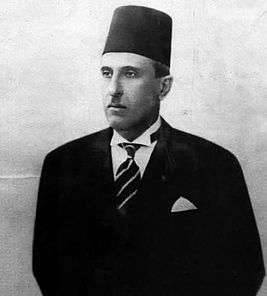 Formally, the mandate to govern Syria did not mean the transformation of the country into a French colony. Under the control of France provided for the creation of parliament, the introduction of the presidency of the country. In 1936, an agreement was signed between the French and Syrian parties on the prospective proclamation of the independence of Syria. However, three years later, the French leadership refused to ratify this treaty. When France was occupied by Hitler's Germany in 1940 and the pro-Hitler regime of Vichy was established in Paris, Syria was under its control. But already in June-July, British troops and the forces of Free France managed to take Syria and force the Nazi troops out of it. General Charles de Gaulle agreed to grant Syria independence. This decision was made by 1941 in September 27. In 1941, Shukri al-Qatli (1943-1891) was elected the president of Syria - an old participant in the movement for independence from the Ottoman Empire, and then against the French government (see photo).
Formally, the mandate to govern Syria did not mean the transformation of the country into a French colony. Under the control of France provided for the creation of parliament, the introduction of the presidency of the country. In 1936, an agreement was signed between the French and Syrian parties on the prospective proclamation of the independence of Syria. However, three years later, the French leadership refused to ratify this treaty. When France was occupied by Hitler's Germany in 1940 and the pro-Hitler regime of Vichy was established in Paris, Syria was under its control. But already in June-July, British troops and the forces of Free France managed to take Syria and force the Nazi troops out of it. General Charles de Gaulle agreed to grant Syria independence. This decision was made by 1941 in September 27. In 1941, Shukri al-Qatli (1943-1891) was elected the president of Syria - an old participant in the movement for independence from the Ottoman Empire, and then against the French government (see photo). However, while World War II was going on, the command of Free French decided not to withdraw French troops from Syrian territory. Therefore, in fact, Syria continued to remain under French occupation during the entire period of the Second World War and for another year after its end. It was only in the spring of 1946 that the withdrawal of French troops from Syria began. Officially, the withdrawal of the troops was completed on 17 on April 1946. This date, celebrated as the Day of Evacuation in Syria, can actually be considered as the day of independence of the modern Syrian state. The first president of independent Syria was Shukri al-Quatli. More precisely, he simply did not leave the post for which he was elected in 1943, and continued to rule Syria already as president of an independent state. Since then, the Arab nationalist parties began to determine the political life of Syria - the Syrian Social Nationalist Party, sympathizing with the end of World War II to the Italian fascists and German Nazis and sharing anti-Semitic ideas, and more left, but also the nationalist Arab Socialist Renaissance Party. In addition, the Communists have been active in Syria.
The first years of Syria’s political independence were marked by confrontation between rival groups of the political and military elite. The situation was aggravated by the emergence of the State of Israel. In 1948-1949 the Syrian army took part in the Arab-Israeli war, which ended in defeat for the Arab coalition. As a result of this war, Israel took control of a large part of the Palestinian territories inhabited by Arabs. Dissatisfied with the outcome of the war, the Syrian military elite accused President al-Qatli of defeat. Riots broke out in Damascus, the military intervened. The president was removed from power, and the military was proclaimed by Colonel Husni al-Zaym (1897-1949), a Kurd by nationality, a former Ottoman officer, as the new head of state. However, after four months he was overthrown by another group of officers and soon shot. The new head of state was Colonel Sami Hinawi, who ensured the restoration of civilian power in the country. Hashim Bey Khalid Al-Atassi (1875-1960), a former Ottoman official who later participated in the anti-French independence movement, became president of Syria. However, in 1951, a new military coup took place in the country. He was headed by Adib ibn Hasan al-Shishakli (1909-1964) - deputy chief of staff of the Syrian army, who from his youth participated in the activities of the Syrian social nationalist party. At first, Shishakli (in the photo) preferred to remain in the shadows, and the post of president was held by Defense Minister Fawzi al-Selu (1905-1972).
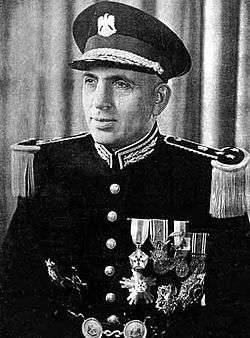
Later, Shishakli removed al-Selu and the latter was forced to flee to Saudi Arabia, where he became an adviser to the king. In 1953-1954 the post of president of Syria was Shishakli. It was during his reign that Syria became one of the main shelters for former Nazi war criminals. Many of the Nazi Wehrmacht officers, the SS, the Gestapo found refuge in Syria and, moreover, took an active part in the creation and development of the Syrian special services, the army and the police. Sischakly introduced a tough military dictatorship, banning political parties and starting persecution of the opposition. Finally, in February, 1954 of Shishakli was overthrown and fled the country (a Syrian druse killed him later in Brazil in retaliation for a military operation against the Druze). Then, from 1954 to 1958, several civilian presidents were alternately in power in Syria, including Hashim al-Attasi and Shukri al-Quatli already known to us. In 1958, an agreement was reached with Egypt, where the famous Arab nationalist Gamal Abdel Nasser was in power, to establish the United Arab Republic (UAR) of Egypt and Syria. The president of the union state was Gamal Abdel Nasser, who enjoyed incredible popularity not only in Egypt, but also in Syria, as well as in many other Arab countries. However, gradually the highest posts in the UAR began to put, first of all, immigrants from Egypt. By the way, the representative of Nasser in Syria was not the Syrian, but the Egyptian - Marshal Hakim Abdel Amer. Nasser then dissolved Syrian political parties and proceeded to nationalize Syrian enterprises. This caused discontent of the Syrian political, military and economic elite.
28 September 1961 A group of Syrian officers seized power in Damascus, Marshal Amer was arrested and exiled to Egypt. Syria announced its withdrawal from the United Arab Republic. The new president of Syria has become a famous politician Nazim al-Qudsi. However, already in 1963, he was overthrown as a result of another military coup. Amin al-Hafez (1921-2009) became the chairman of the National Council of the Revolutionary Command. He is Armenian by his father and mother by Alawite, representing the Ba'ath Party of the Arab Socialist Revival and taking the course of cooperation with the USSR and building socialism in Syria. However, in 1966, he was overthrown by General Salah Jadid, also a native of the Alawite district. Formally, the long-time Baath party functionary Nureddin Al-Atassi was proclaimed president of Syria, but all the real power in the country was concentrated in the hands of General Salah Jadid.
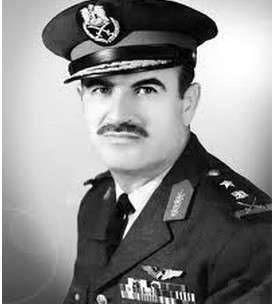 A person close to Jadid was Major General Hafez al-Assad (pictured), who previously held the post of commander of the Syrian Air Force, and then was appointed the country's defense minister. Like Salah Jadid, Hafez Assad came from an Alawite family. But. In 1967, another important event occurred that affected the political life of Syria - the Syrian army suffered a crushing defeat in the Six Day War with Israel. After that, contradictions began to grow between Salah Jadid and Hafez Assad, which led to a serious conflict within the country's military elite. The confrontation between Assad, who controlled the army, and Jadid, who retained control of the security services, escalated into an armed conflict in February 1969. Assad's supporters prevailed, and the director of the National Security Service, Abd al-Karim al-Jundi, committed suicide. In November 1970, Hafez Assad removed Salah Jadid from power. Jadid was placed in the Mezze prison, where he spent 23 years until his death in 1993. It was during the reign of Hafez al-Assad that Syria turned into a real regional power, playing an important role in the Middle East politics. Cooperating with the Soviet Union, Assad managed to significantly strengthen the Syrian armed forces, develop industry, and establish cultural ties, including in the direction of training specialists in Soviet higher educational institutions. One of the main foreign policy tasks of Syria during the years of the rule of Hafez al-Assad was the weakening of Israeli influence in the region, for which Syria provided comprehensive support to a number of Palestinian radical organizations, from Islamist to leftist. It can be said that it was Hafez al-Assad who laid that powerful political, military and economic foundation that formed the basis of modern Syrian statehood and does not allow it to completely collapse even after several years of bloody civil war under the blockade of the Syrian government by the West.
A person close to Jadid was Major General Hafez al-Assad (pictured), who previously held the post of commander of the Syrian Air Force, and then was appointed the country's defense minister. Like Salah Jadid, Hafez Assad came from an Alawite family. But. In 1967, another important event occurred that affected the political life of Syria - the Syrian army suffered a crushing defeat in the Six Day War with Israel. After that, contradictions began to grow between Salah Jadid and Hafez Assad, which led to a serious conflict within the country's military elite. The confrontation between Assad, who controlled the army, and Jadid, who retained control of the security services, escalated into an armed conflict in February 1969. Assad's supporters prevailed, and the director of the National Security Service, Abd al-Karim al-Jundi, committed suicide. In November 1970, Hafez Assad removed Salah Jadid from power. Jadid was placed in the Mezze prison, where he spent 23 years until his death in 1993. It was during the reign of Hafez al-Assad that Syria turned into a real regional power, playing an important role in the Middle East politics. Cooperating with the Soviet Union, Assad managed to significantly strengthen the Syrian armed forces, develop industry, and establish cultural ties, including in the direction of training specialists in Soviet higher educational institutions. One of the main foreign policy tasks of Syria during the years of the rule of Hafez al-Assad was the weakening of Israeli influence in the region, for which Syria provided comprehensive support to a number of Palestinian radical organizations, from Islamist to leftist. It can be said that it was Hafez al-Assad who laid that powerful political, military and economic foundation that formed the basis of modern Syrian statehood and does not allow it to completely collapse even after several years of bloody civil war under the blockade of the Syrian government by the West. Hafez Asad, who ruled Syria for over thirty years, died on June 10 of heart failure from 2000. As president of the country, he was replaced by his son Bashar Asad, an ophthalmologist who had been living abroad for a long time, but had returned to Syria after his brother Basil Assad, who was considered the official heir of Father Hafez, died in a car accident.
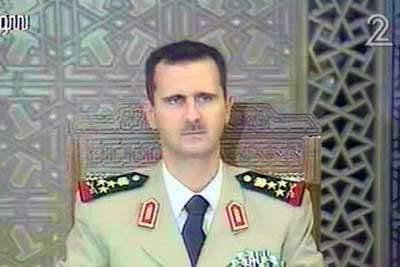 After the death of his brother, Bashar received an additional military education, was appointed commander of the Republican Guard of Syria. The most important task that Bashar Assad still realizes as Syrian president is the fight against terrorist groups, the bloody actions that killed hundreds of thousands of Syrians, and millions of people in the country became refugees. True to the cause of his father, Bashar Asad maintains friendly relations with Russia, which turned out to be the only world power to come to the aid of Damascus in the fight against terrorism. The fate of Syria became very significant for Russia after our country dispatched units of the Aerospace Forces to help the Syrian government in the fight against terrorism. The military operation with the participation of Russian VKS has seriously damaged the positions of terrorist organizations operating in Syria. In fact, at present, it is Russia that has become the most important guarantor of the preservation of the political independence and territorial integrity of the Syrian state.
After the death of his brother, Bashar received an additional military education, was appointed commander of the Republican Guard of Syria. The most important task that Bashar Assad still realizes as Syrian president is the fight against terrorist groups, the bloody actions that killed hundreds of thousands of Syrians, and millions of people in the country became refugees. True to the cause of his father, Bashar Asad maintains friendly relations with Russia, which turned out to be the only world power to come to the aid of Damascus in the fight against terrorism. The fate of Syria became very significant for Russia after our country dispatched units of the Aerospace Forces to help the Syrian government in the fight against terrorism. The military operation with the participation of Russian VKS has seriously damaged the positions of terrorist organizations operating in Syria. In fact, at present, it is Russia that has become the most important guarantor of the preservation of the political independence and territorial integrity of the Syrian state.
- P P 'SЊSЏ RџRѕR "RѕRЅSЃRєRёR№
- http://www.liveinternet.ru/, http://cursorinfo.co.il/, http://voprosik.net/
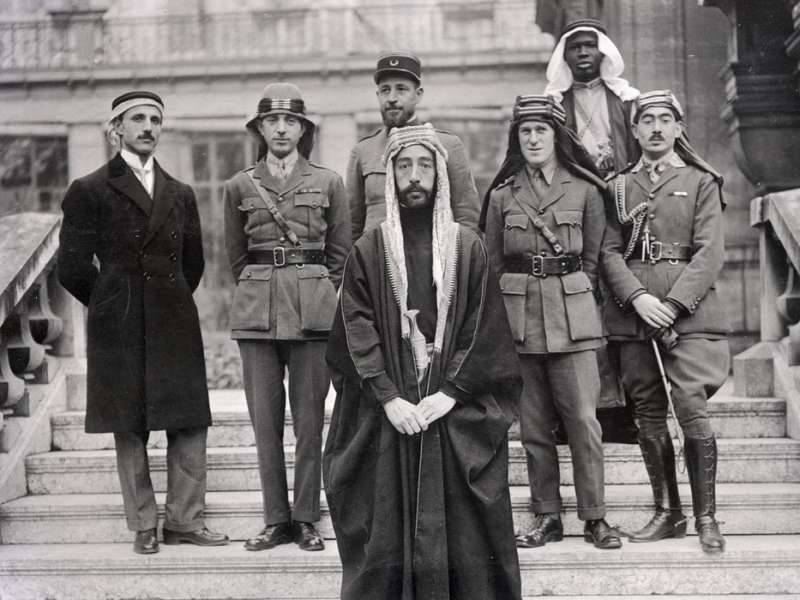
Information